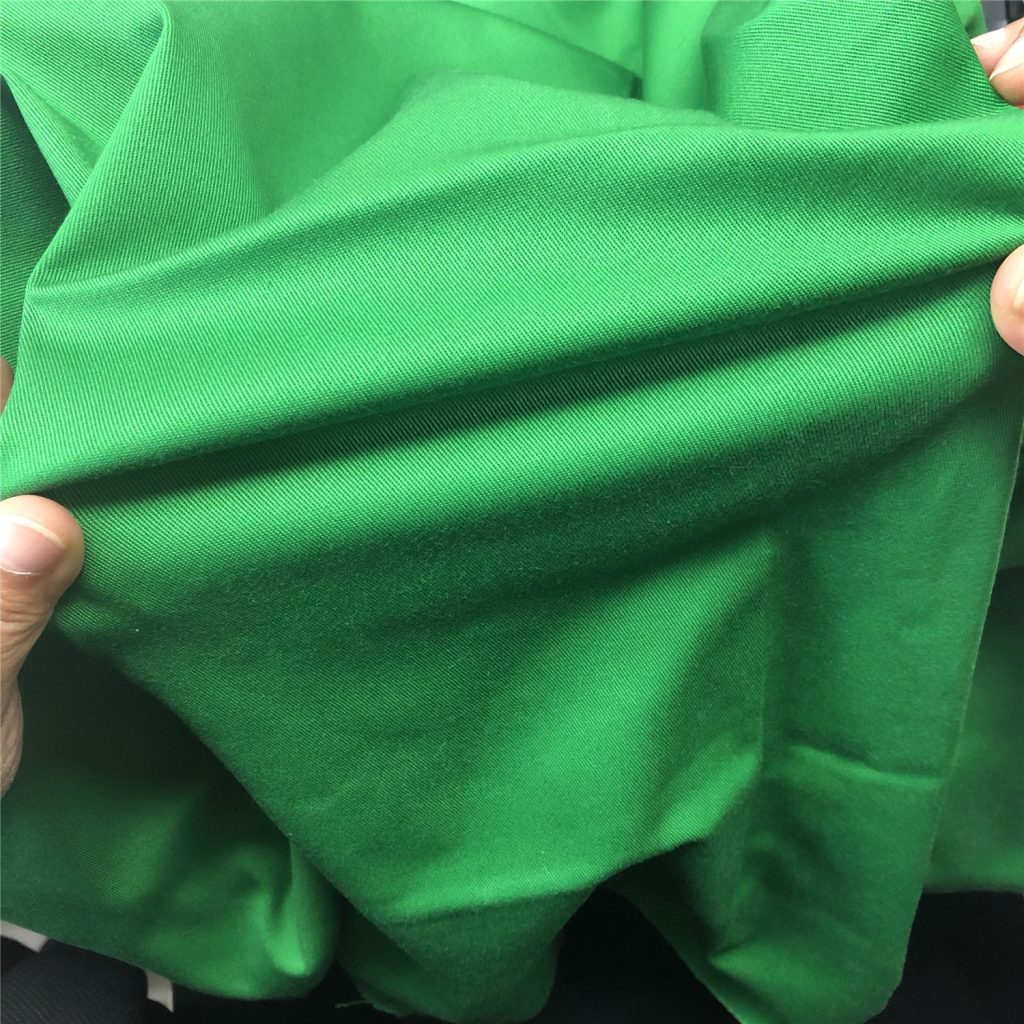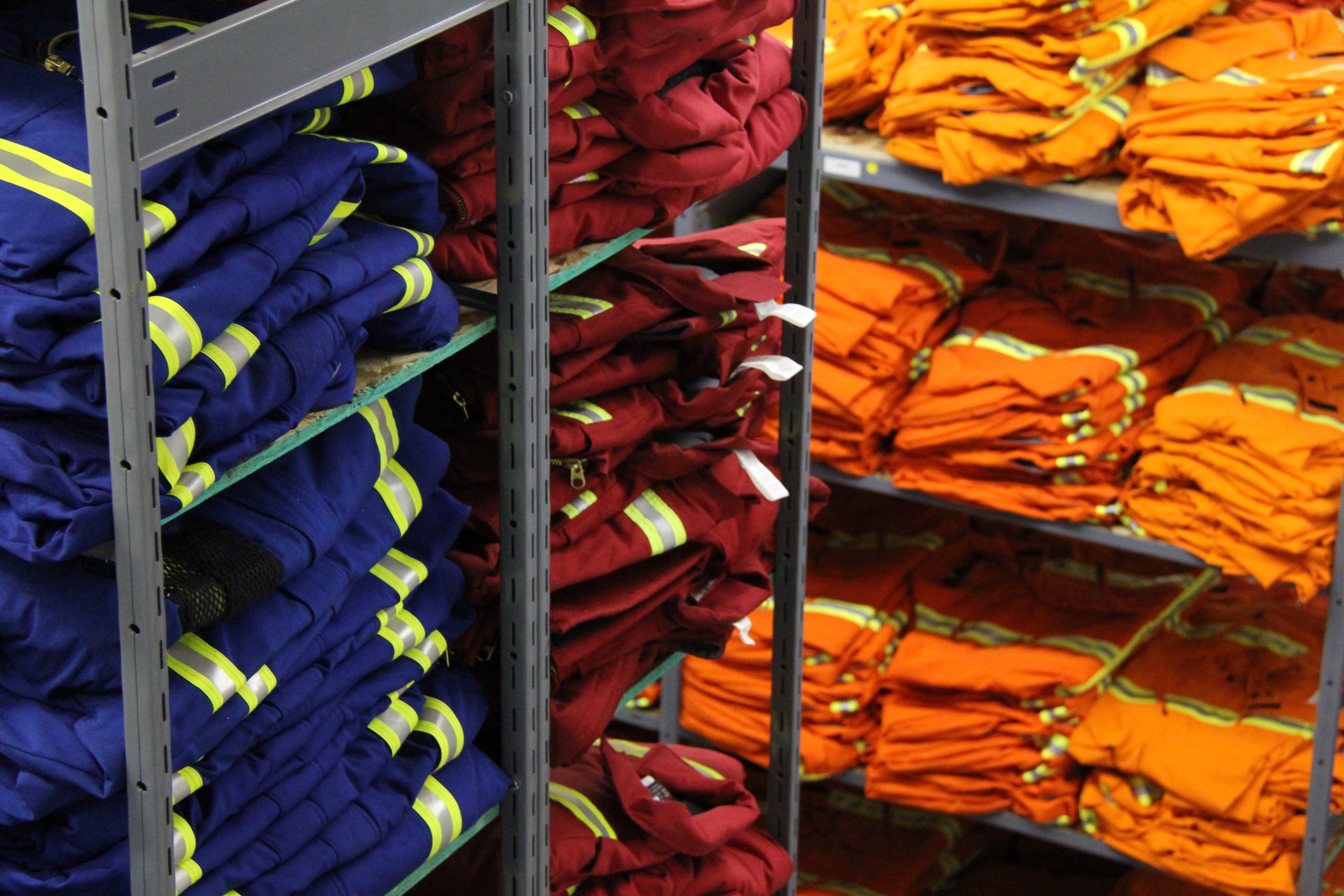In the competitive world of workwear, selecting the right fabric is critical to ensuring comfort, durability, and performance. Stretch workwear fabric is changing the game by offering unmatched flexibility and fit, making it the perfect choice for today’s work environments.
Stretch fabrics provide increased flexibility, comfort, and fit, allowing greater freedom of movement and improved performance.
Let’s explore the various benefits and applications of stretch workwear fabric.
What Are the Advantages of Stretch Fabric?
The main advantage of stretch fabric is that it allows you to move without restriction.This helps you perform better and not be uncomfortable when you’re working long hours.
In addition, stretch woven fabrics are durable and resistant to wear and tear, which makes them great for outdoor conditions. This means garments made from stretch fabrics will hold up in tough work environments.
What Are the Characteristics of Stretch Fabric?
Stretch fabrics are comfortable and don’t wrinkle or crease. This makes them perfect for clothing that needs to fit well and be comfortable.
The elasticity of these fabrics allows you to move freely, which is important for jobs that require physical activity. In addition, stretch fabrics hold their shape and appearance over time, so your workwear will look professional and work well.
What Are the Benefits of 2-Way Stretch Fabric?
2-way stretch fabric stretches either widthwise or lengthwise. This provides a lot of flexibility compared to non-stretch fabrics.
This type of stretch is good for garments that need some give, like pants and shirts. It helps them fit better and be more comfortable. While not as elastic as 4-way stretch fabrics, 2-way stretch fabrics still make your workwear more wearable and adaptable.
How to Choose the Right Stretch Workwear Fabric?
There are several important factors to consider when choosing the right stretch workwear fabric. Here’s a detailed guide:
Fabric Composition
- Cotton/Stretch: This fabric is comfortable and breathable, but it may not be very durable.
- Polyester/Cotton/Stretch: This is a popular choice for workwear brands because it’s highly abrasion resistant and moderately priced. The polyester provides durability and wrinkle resistance, while the cotton adds comfort and breathability.
- Cotton/Nylon Stretch: This fabric combines the comfort of cotton with the strength and durability of nylon. It’s perfect for high-performance workwear.
Types of Stretch Yarn
Based on the information in the image, there are different levels of stretch fabric to consider:
- Comfortable Level Stretch: This uses mechanical stretch fabric, which provides structural elasticity, comfort, and durability. It has an elastic elongation of less than 9%.
- Performance Level Stretch: This uses T400 or PBT stretch fiber fabric, which are new composite materials that offer excellent elasticity and hand feeling. They have an elastic elongation of 9% to 14%.
- Flagship Professional-Level Stretch: This uses high-end stretch fibers like Lycra®, XLA®, or Sorona®. These fabrics are internationally certified for their superior elasticity. They have an elastic elongation of more than 14%.
Weight (GSM)
The weight of the fabric is measured in grams per square meter (GSM). This affects the durability and suitability of the fabric for different applications:
- Heavier fabrics (250-300 GSM): These are great for rugged workwear because they’re very durable and provide a lot of protection.
- Lighter fabrics (150-200 GSM): These are good for casual or light-duty workwear because they’re comfortable and flexible without sacrificing performance.
Functional Finishes for Special Industries
For industries with specific safety and performance requirements, functional finishes can greatly enhance the utility of stretch workwear fabrics. Here are detailed recommendations for various industries:
Catering Industry
- Oil-Proof: Prevents stains from food oils and grease, keeping your workwear looking clean and professional.
- Anti-Fouling: Resists dirt and grime, making it easier to keep your uniform clean in the messy environments typical of catering.
- High-Temperature Washing: Ensures you can thoroughly sanitize your garments at high temperatures without damaging the fabric.
Medical and Healthcare
- Water-Resistant and Waterproof: Protects against spills and bodily fluids, enhancing hygiene and safety for healthcare workers.
- High Colorfastness to Light: Maintains fabric color and appearance even after repeated exposure to harsh cleaning agents and frequent washing.
- Anti-Ultraviolet: Provides protection against harmful UV rays, which is beneficial for outdoor healthcare activities or extended exposure to artificial lighting.
Outdoor Works
- High-Temperature Washable: Allows you to clean your garments thoroughly to remove dirt and contaminants acquired during outdoor work.
- Industrial Washing: Fabrics designed to withstand the harsh conditions of industrial laundering processes, ensuring long-lasting durability.
- Anti-Wrinkle: Keeps your garments looking neat and professional even after strenuous physical activities and extended wear.
Rental Garments
- High-Temperature Washable and Industrial Washing: Ensures you can clean rented uniforms thoroughly and withstand repeated laundering cycles without degrading the fabric.
- Anti-Wrinkle: Maintains a crisp, clean appearance, which is crucial for rental garments that need to look fresh for each use.
Work and Mechanical Engineering
- Water-Resistant and Waterproof: Essential for protecting you from liquid hazards and ensuring your comfort in wet environments.
- High Colorfastness to Light: Prevents fading and maintains the professional look of your uniforms exposed to intense sunlight or harsh lighting conditions.
- Anti-Ultraviolet: Adds an extra layer of protection against UV exposure, important for outdoor and high-intensity lighting work.
General Industry
- Oil-Proof and Waterproof: Provides comprehensive protection against various industrial liquids, oils, and contaminants.
- High Colorfastness to Light: Ensures your garments remain vibrant and professional-looking despite exposure to light and frequent washing.
- Anti-Chlorine Bleaching: Allows you to use chlorine bleach in laundering, which is effective for removing tough stains and disinfecting garments without damaging the fabric.
These functional finishes ensure your workwear is not only comfortable and flexible but also tailored to meet the demands of specific industries, providing additional safety and durability.
Which Brands Have Adopted Stretch Fabric for Workwear?
Several leading workwear brands have recognized the benefits of stretch fabrics and incorporated them into their product lines:
- Carhartt: Rugged Flex Rigby Dungaree Pants
- Dickies: FLEX Regular Fit Straight Leg Pants
- Caterpillar (CAT): H2O Defender Pant
- Duluth Trading Company: DuluthFlex Fire Hose Work Pants
These brands offer a variety of workwear options that incorporate stretch fabrics, providing enhanced comfort, durability, and performance.
Conclusion
By choosing stretch workwear fabric, you can significantly improve the comfort and performance of your workwear garments. By understanding the benefits and characteristics of these fabrics, as well as how to select the right type for your needs, you can ensure your workwear meets the highest standards of quality and functionality.
For more insights and updates on workwear fabrics, stay connected with our blog. We’d love to hear your thoughts and experiences in the comments below!


